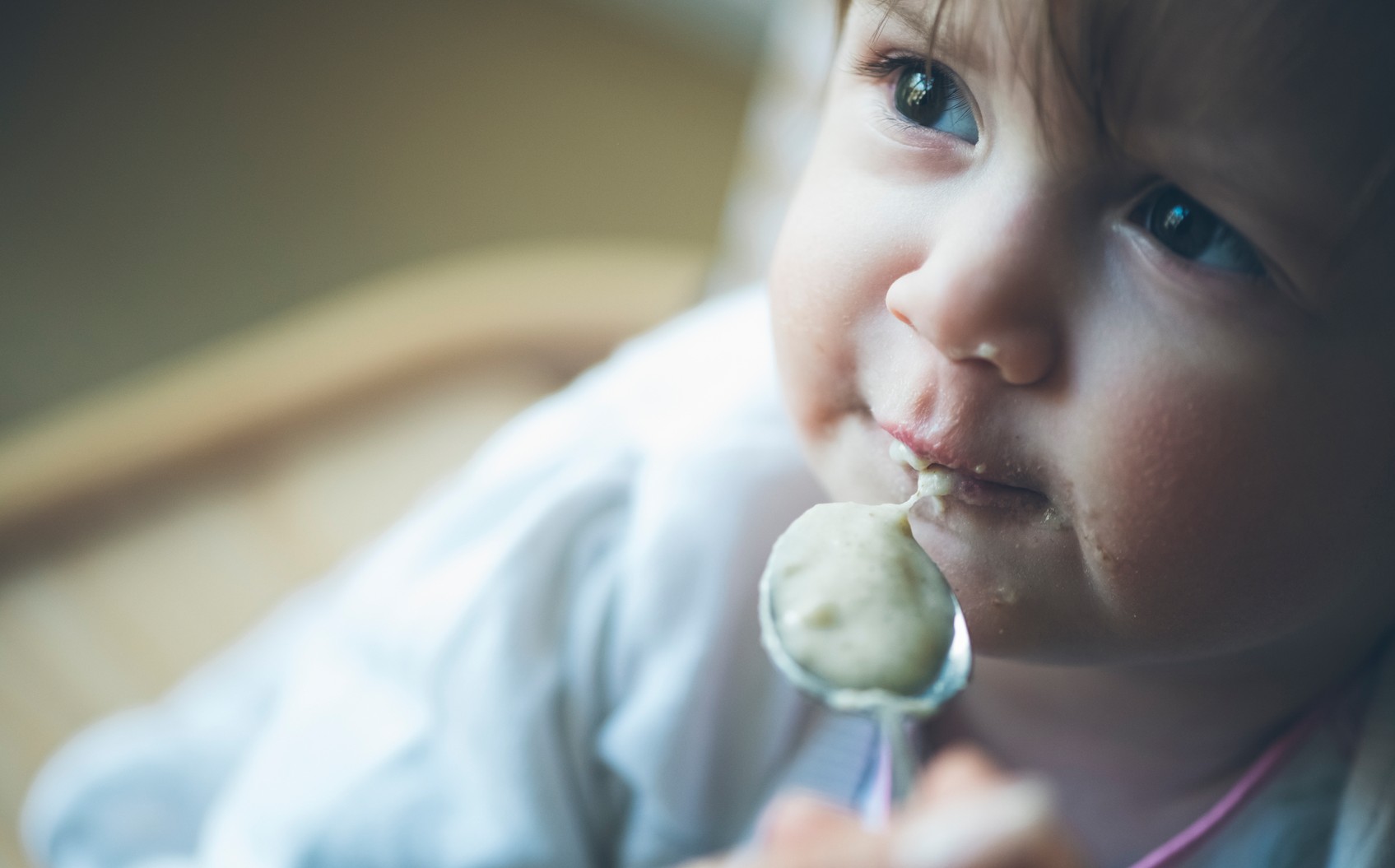The very early stage of weaning is about exploration. During this stage it is important that your baby becomes familiar with taking foods from a spoon. You expect both a mess and some food waste as your baby gets used to this new experience of eating!
Stage 1 represents the first 1-2 weeks of introducing solid food to a baby’s diet. During this introductory period the texture of food offered should progress from a runny (semi-liquid) and absolutely smooth consistency to a slightly thicker purée with no lumps.
What types of foods should be offered during this stage?
One new food should be introduced at a time with each new food spaced 1-2 days apart. New foods should ideally be given early in the day.
The food offered should become increasingly varied so that your baby can experience different tastes and flavours.
Start by offering a runny texture, and gradually move to slightly thicker purées without lumps. Offer 2-3 meals per day of about 5-10 teaspoons per meal.
Continue to breastfeed on demand or the give usual amount of formula, offering solids during or after the milk feed.
Tips on preparing foods during the first stage of weaning
Blend the food with breast milk, formula milk or cooled boiled water until it is a smooth and runny consistency. The baby’s usual milk (breast milk or formula milk) should be used to modify the texture of the food – the baby will recognise the taste. Once the baby is 6 months of age, small amounts of pasteurised full-fat cows’ milk can be used to prepare weaning foods.
Pass the food through a sieve to remove any lumps.
Foods should be the same texture throughout. Do not mix food textures at this stage.
Don’t give your baby high-salt or highly-processed foods, e.g. gravies and sauces, and don’t add butter or spreads to their food.
Foods can be prepared in bulk and frozen in small portions using sterilised ice-cube trays.
Suggestions for first foods
Gluten-free cereal, e.g. baby rice.
Vegetables made into a purée, e.g. carrot, parsnip, turnip, broccoli, cauliflower, butternut squash, courgette.
Fruit made into a purée, e.g. banana, stewed apple, pear, peaches, apricots, plums, melon.
Meat, poultry and fish purées, e.g. red meat such as lamb and beef.
Remember! When solid foods are added to your baby’s diet, his or her stools may change colour and odour. This is normal!



